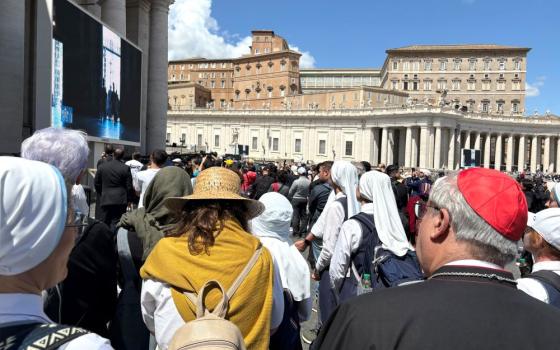Yesterday’s dueling rulings from the D.C. and 4th Circuit courts, regarding the legality of health care subsidies in those states that opted not to erect a state-level health insurance exchange, are occasioning all manner of hand wringing. On the merits, the 4th Circuit got it right and the D.C. Circuit got it wrong.
But, the reporting on the rulings all noted that the full D.C. Circuit is likely to overrule the three judge panel when the case is appealed en banc. Given the fact that a full court is usually loathe to overrule their colleagues, why did most commentators conclude that typical reluctance would not apply here? Because the full D.C. Circuit court has seven Democratic appointees and only four Republican appointees.
This partisan analysis troubles many people. Isn’t justice supposed to be blind? Are not judges supposed to be above partisan considerations? Of course, in Bush v. Gore, we saw partisanship at its most naked. And, a string of 5-4 decisions from the Supreme Court have broken down largely along partisan lines. Still, such partisanship is a thing to be avoided and deplored, most commentators agree. Is the judicial system now to be subject to the same polarizing politics that have afflicted the legislative branch?
Not really. Law is not like the space station. It is not cut off from the ambient culture. Indeed, law -and lawyers and, consequently, judges – emerge from an intellectual culture that largely shapes the decision-making process. After years of liberal dominance at law schools and the courts, in recent decades, conservative legal theorists have had most of the juice. A judge brings a worldview with her to the bench and a legal case requires not only that a judge determine what the law actually says, but what the words of a given law actually mean, and what the Constitution means, and, ultimately, what America means.
One reason not to be overly concerned about any perceived “conservative dominance” at any given court is that there are divergences of opinion and emphasis among conservative legal theories, not just between conservatives and liberals. As we all have learned, conservatives are very dedicated to the principle of “judicial restraint,” except when they aren’t. In the case of Citizens United, the Court could have ruled narrowly on the issue at hand: Did a conservative group have the constitutional right to air a film critical of Hillary Clinton a few weeks before an election? But, instead, the Roberts’ court ordered re-arguments on the larger issue of campaign finance laws, which the majority subsequently overturned. So much for restraint.
In the recent Hobby Lobby case, the court fashioned its ruling simply on the basis of applying the Religious Freedom Restoration Act (RFRA) and declined to address the underlying constitutional issues. But, what if they hadn’t? Or, what if a subsequent case requires them to look at those underlying constitutional issues? Would Justice Antonin Scalia have backed away from his own decision in Employment Division v. Smith, the case RFRA was designed to counter-act? After all, in Smith, the religious rights in questions were those of some peyote-smoking Native Americans, not Holy Mother Church. One wants to hope that Scalia would have stuck to his guns, but who knows.
Liberal legal theorists have their own conflicting imperatives. Equality is usually a trump card, except when it is not. Classic liberal theory champions individual rights above equality and contemporary legal challenges, usually brought by interest groups, can put the emphasis on the one or the other depending on the case. Certainly, the Hosanna Tabor decision, which was unanimous, showed the willingness of the liberals on the Supreme Court to buck the arguments of Obama’s Justice Department and vindicate the principle of non-interference by the State in the workings of a church, no matter how badly the Obama administration wanted to achieve its objectives of applying employment law to churches. Would a future liberal judge follow the same line of reasoning as did the current crop of liberals on the court?
Everyone is rightly frustrated with the divisiveness and gridlock in Washington and the prospect of that divisiveness extending to the courts is not a welcome development. But, the tonic of history should deflate any hyper-ventilating. There was surely no nastier election than that of 1800, and the issues were more fundamental than any provision of the Affordable Care Act. Adams was branded a monarchist and Jefferson an atheist. Dueling pulpits hurled abuse at the other side. After the election, the Federalists, not without reason, saw Jefferson as their arch enemy and the perception was mutual. Jefferson wrote to his Attorney General, Levi Lincoln, about a planned, later famous, letter to the Danbury Baptists in which Jefferson introduced the metaphor of a “wall of separation” between Church and State, “I know it will give great offense to the New England clergy but the advocate of religious freedom is to expect neither peace nor forgiveness from them.” Jefferson told Lincoln he hoped to push the New England Federalist clergy “into an abyss from which there shall be no resurrection.” The Connecticut Gazette, a Federalist newspaper, returned the vitriol. “From that fanatical spirit of liberty and equality which among democrats is the order of the day, we have everything to fear,” the newspaper asserted. “It attacks every institution of wisdom and antiquity and alike dooms to destruction our learning, our laws, and religion.” Yet, the Republic survived the 1800 election, and Jefferson’s presidency, and the long periods of quiescent conservative governance, and the occasional outburst of liberal legislative energy, and even a great Civil War when the framers belief that a polity based on interests could achieve domestic tranquility was shattered by a conflict over first principles.
I do not believe we are headed for another civil war anytime soon. I wish our politicians could learn to work together more amicably and productively, but the “culture wars” have exhausted most people and only the most arch of arch-ideologues, powerful though they be, have much stomach for more. This year, very few incumbents were overthrown by Tea Party primary challengers. This year, Democrats have begun to split from the White House, believing that their commitment to principles must be their guide, not the political fortunes of a fickle, mismanaged White House. So, while it is unfortunate that we assume our judges will vote one way rather than another based on which party’s president appointed them to the bench, the assumption may not be correct and, even if correct, may not be as significant as other intellectual and cultural trends. The ACA will survive – and so will the country. Exhale.



